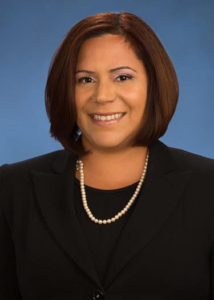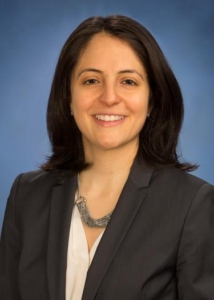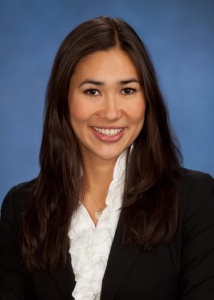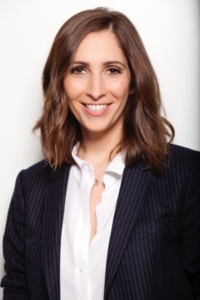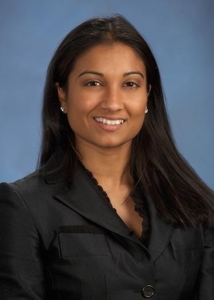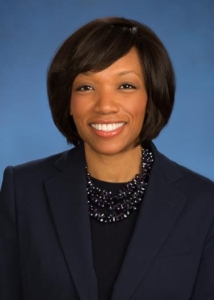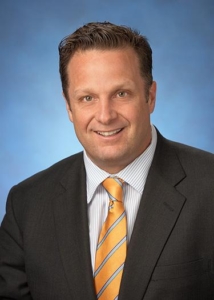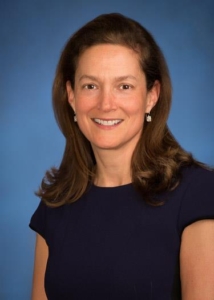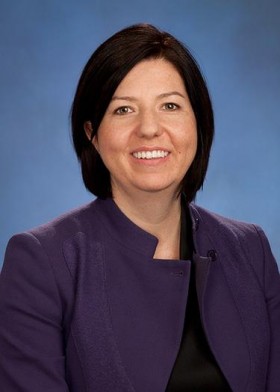 Recently Sinead Strain, who heads Goldman Sachs’ fixed income, currencies and commodities (FICC) technology, had the opportunity to share her career trajectory with young women who were visiting the firm as part of the Girls Who Code initiative.
Recently Sinead Strain, who heads Goldman Sachs’ fixed income, currencies and commodities (FICC) technology, had the opportunity to share her career trajectory with young women who were visiting the firm as part of the Girls Who Code initiative.
“It’s vital that our industry shows girls the diversity of roles on offer, and lets them see how technology skills can open the door to virtually any industry,” says Strain. “There’s a wide spectrum of opportunities, and learning about tech gives girls the foundational skills they need to succeed wherever they decide to go. It’s a skill that’s transferable.”
For Strain, it’s important to make it clear to women entering the industry that their choice isn’t to stay in or opt out, but rather that they can always try something new.
And that’s what has kept Strain moving up the ladder in her career. After graduating from Dublin City University, she participated in a work placement with Microsoft in Dublin. The rewarding experience taught her a variety of lessons, but one would impact her career path: she realized that she wanted to pursue her tech career in a business-facing technology role.
Strain began pursuing roles in financial services and has spent 21 years in the industry with two firms. Her first stint was at JP Morgan, and for the past 10 years she has worked at Goldman Sachs.
A career defining moment came in 2008 when Strain was named global head of FX trading and sales technology. This appointment occurred only a few weeks before the collapse of Lehman Brothers. Strain describes the experience as “baptism by fire. I literally jumped into the deep end, and it was one of those pivotal times where you have to accelerate your learning and call on the skills that you have acquired over the years.”
In 2014 Strain was named head of FICC technology. Strain acknowledges that this role was an exciting move, as she now oversees technology for the entire FICC division. Reflecting on her career, Strain names this promotion as one of the achievements she’s most proud of, and highlights the opportunities this position affords: “I love the diversity of the role and the opportunity to partner and build relationships across the firm.”
No two days are the same, as Strain balances working with her teams to drive business growth, leveraging platform solutions to support internal and external clients, and managing a diverse technology stack while investing and developing technical talent.
Her Role in the Evolving World of Tech
Strain is acutely aware of the rapid changes in tech, the disruptive nature of technology in the world at large and how financial firms have evolved by keeping up with the latest trends. She notes that Goldman Sachs leadership often refers to the firm as a technology company because of its innovation in finding technological solutions to drive growth. She cites a new platform called Marquee which will offer external clients access to its in-house tools that analyze markets and manage risk.
Fostering adoption of strategic platforms to enable the FICC business is both rewarding and progressive, says Strain. “The rate of change from a technology perspective is unprecedented and presents an exciting time to embrace and leverage these changes to enable our business and our clients.”
Similarly, this can be seen more broadly across the financial industry. “The innovative culture of startups has led to the growing dominance of FinTech and has led to the creation of disruptive technology that has influenced Wall Street,” Strain says.
The Challenge To Retain Women
Having just returned from the 2015 Grace Hopper Celebration of Women in Computing, through the Anita Borg Institute, Strain says that much of the discussion at the conference surrounded retaining and promoting women in the industry. Where the focus had been on building a talent pipeline, she says that now companies need to provide an equal platform to retain women and increase the percentage of senior female role models. “We need up-and-coming women to say, ‘I want to stay in,’ because they see more senior women who have conquered the challenges, whether around work-life balance or just feeling different in the industry, who can provide the encouragement they need not to opt out.”
Strain notes that being interviewed by two senior women at Goldman Sachs was a key differentiator for her. “I knew I was coming into the right culture and that’s what I want for others,” she says.
She stresses that the positive effect female mentors have had on her career inspires her to continue to support initiatives such as Girls Who Code, where she can share the story of her own career journey to high school girls interested in technology.
Strain has always been active in Goldman Sachs’ Women in Tech network and currently is a global sponsor for the program, stressing that this type of network allows women to bolster their skills. Strain champions programs such as Leadership Development and Geek Speak, which helps women find their voice to talk openly and confidently about their tech accomplishments and develop leadership skills.
Strain also has represented Goldman Sachs on the steering committee of ABI.NY, the New York chapter of the Anita Borg Institute, since its inception two years ago. The chapter is focused on building a community of female technologists in New York City.
An avid traveler, Strain developed a passion for wildlife early on, having grown up with a father who loved wildlife.She loves to travel to places like Africa, including a recent trip to Botswana – “the more remote, the better,” she says. “I love the chance to be disconnected from the world and immerse myself in an experience that’s so different from my day-to-day life

